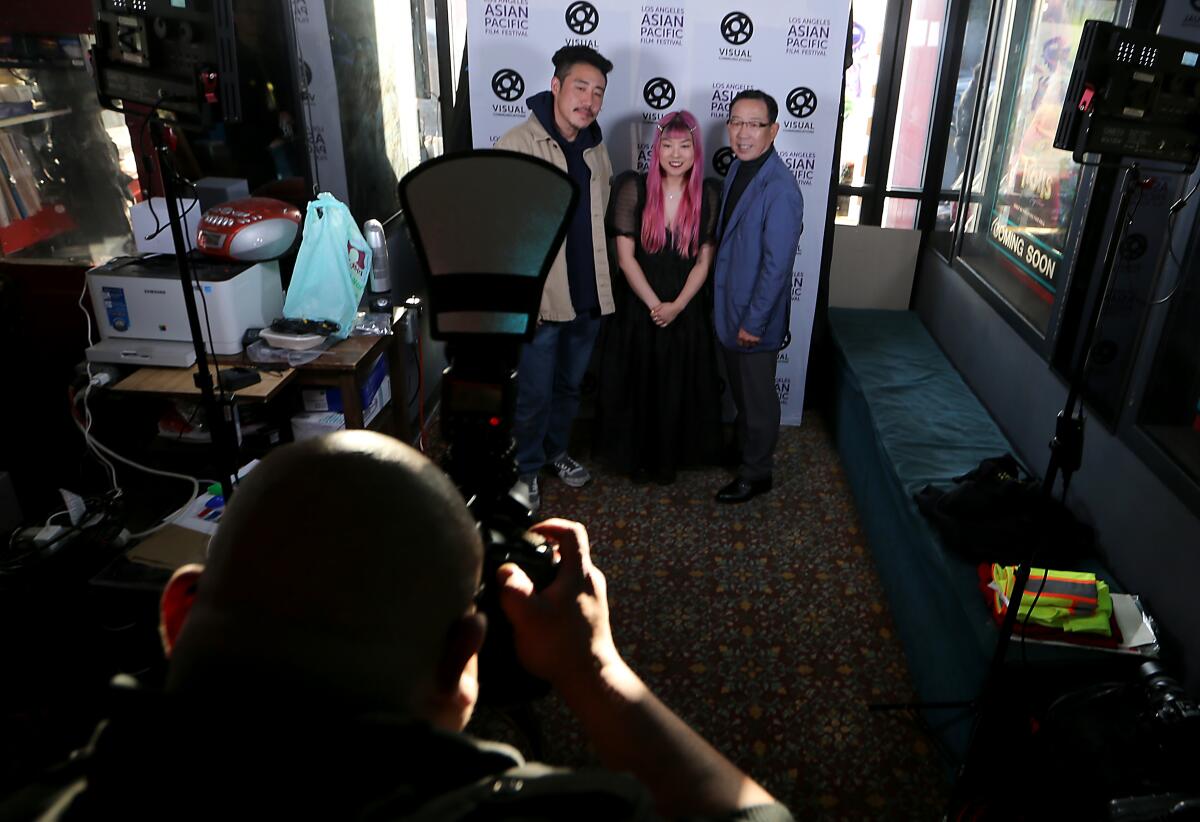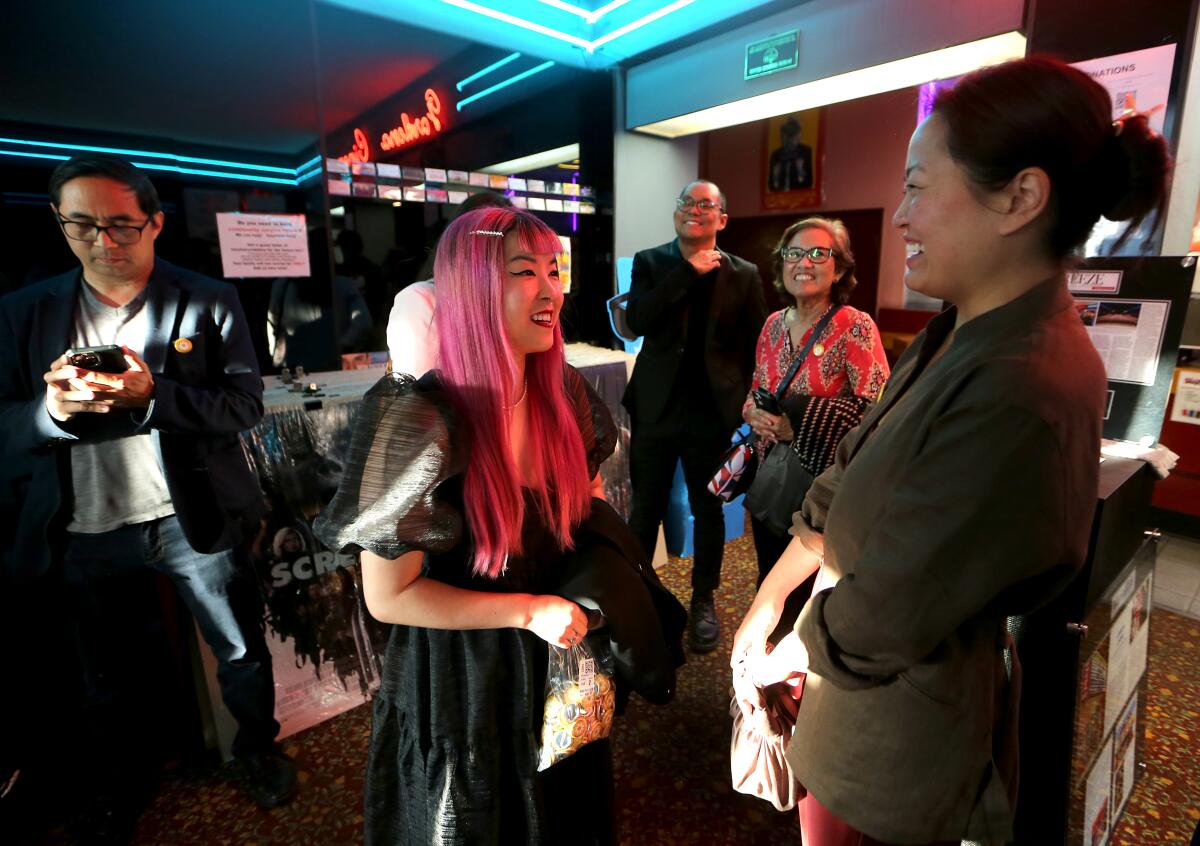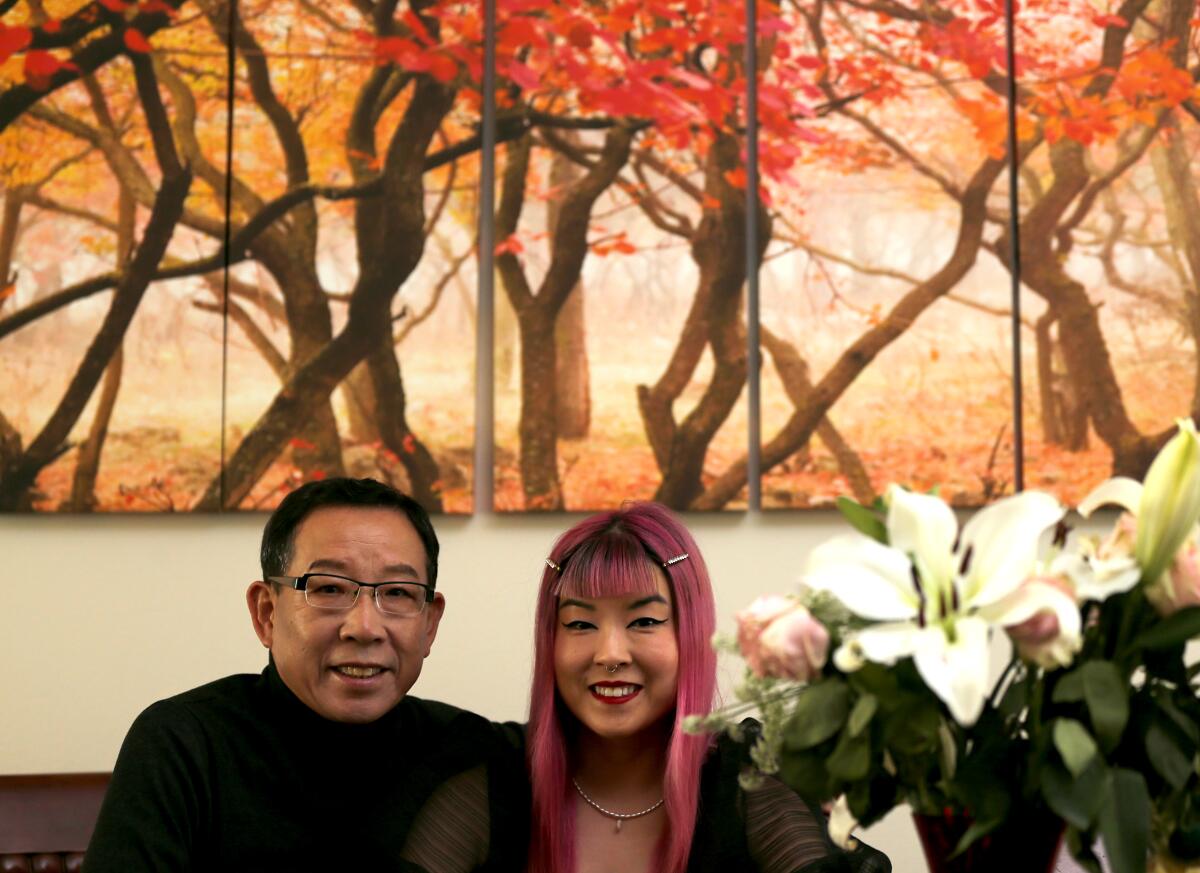New documentary about Korean liquor store families starts messy, necessary conversation

- Share via
Asian American political discourse sometimes reminds me of the arguments I had with my parents as a kid.
We get angry but it’s hard to talk about why. We use the same words but mean different things. Languages get in the way. And the hardest part is just starting the conversation, because sometimes it feels like we don’t ever get to know each other on a personal level.
So when I saw the documentary “Liquor Store Dreams,” it was a balm to these frustrations. The film follows So Yun Um and her father Henry, a liquor store owner in Hawthorne, during a period that includes the summer of protests over the death of George Floyd and the 30th anniversary of the 1992 L.A. riots. The documentary also follows 39-year old Danny Park, another liquor store baby running his parent’s convenience store in Skid Row, whom I wrote about last year.
So films their arguments about the reasons behind property damage at Black Lives Matter protests and anti-Black racism in the Asian American community. I’ve tried to have these conversations with my own parents, so I know how difficult and messy they can be. But “Liquor Store Dreams” makes these discussions beautiful, entertaining, and even funny.

So begins the film with her complicated reactions to the ‘90s-era Hollywood archetype of the racist Korean shopkeeper, referenced in films such as Spike Lee’s “Do the Right Thing” and “Don’t Be a Menace to South Central While Drinking Your Juice in the Hood,” starring the Wayans brothers.
She captures her family in unguarded moments of real candor. Some of the documentary’s most compelling footage shows Henry, 66, watching the news the night violent protests broke out across Los Angeles in the summer of 2020. They argue, and some of the remembered trauma of being a liquor store owner during the 1992 L.A. riots shows in her father’s fear and anger.
But shouting matches are balanced with moments of quiet intimacy, father and daughter balanced on stools, eating home-cooked stew out of plastic microwave rice trays in the back of the liquor store. At times they hand off the camera to each other, trading roles as subject and interviewer. Their fondness for each other shines through the conflict.
I met So and Henry at their home in the South Bay earlier this month, just before the Los Angeles premiere of the documentary, now available on demand and streaming on PBS.org starting July 10.
So and Henry form a striking contrast. I’ve met her a few times for interviews over the past two years, and each time her hair has been a different color — today it’s pastel pink. Henry is dressed for a business meeting, in plain metal-rimmed glasses and a beige suit jacket over a black turtleneck. So is in a black gown with puffy mesh sleeves.
Though they understand each other better after making the film, disagreements persist, So said.
“My dad lives on this principle of, work hard, don’t steal and other things. Which is great. But I have to tell him, his experience isn’t universal,” So said.
Henry’s days of running the liquor store in a high crime area are still vivid memories, though he closed the store and retired last year. He still wonders how someone could be so thirsty that they would open a drink and start drinking before paying for it. When he came to America and struggled to make a living, he used to go three days without food, and even then, he wouldn’t do that.
But So appreciates that her father is trying to put himself in the shoes of his customers. He understands that calling the police could have put his Black customers in danger, and he tried to avoid it most of the time.
“I trust my daughter, no matter what,” Henry said. “Already when she was young, she was very responsible and mature.”
In the quest to articulate an Asian American political identity over these past few years, I wonder if we plan to include our parents. More than half of Asian Americans are immigrants who were born speaking a different language. And in large part, these are the people who need the most help.

It’s immigrants and senior citizens who are most harmed by racism; who are most likely to end up waiting alone at a bus stop at night or working long hours at a liquor store. People who can’t speak English can’t use social media to voice their concerns or participate in public forums. These people, their neighborhoods and their issues are largely absent from this new era of media representation. There’s a persistent disconnect in the ways we define the Asian American community, and these generational divides risk becoming walls.
That’s why I found hope in “Liquor Store Dreams.” If there’s any chance of reconciling Asian American political disagreements, it will be through the kind of love and empathy So and Henry share in the film.
So knows not everyone can get closer to their parents by making a film. But she’s hoping to create some educational materials and work with some Korean churches to disseminate the film in the Korean American community and keep the conversation going.
While I was waiting in line for the premiere, I met another liquor store kid, Andy Kim, 45, now a doctor who works in Koreatown. His father ran Tony’s Liquor in Mid City and eventually took over the other businesses in the strip mall and ran those too. He was rarely home, and Kim says their relationship was “one of those typical Korean parent things where they don’t really say anything.”
The violence of the L.A. riots scared his father, and Andy’s parents tried to raise him outside of Korean culture because they thought he would be safer. They attended a white church on the Westside and kept him away from the liquor store. Kim never learned to speak Korean properly and hardly knew his father.
“I was raised white basically. I didn’t really have a concept of how bitter race relations were at the time,” Kim said.
He forged a new relationship with Korean culture as an adult, eventually moving his medical practice from downtown to Koreatown and trying to relearn the language. He reached the age where he began to wonder who his parents were as young adults. One day in 2017, Kim decided to call his father and try to work things out.
He apologized for complaining about the liquor store as a kid, and thanked his father for working so hard. His father didn’t exactly respond in kind, but Kim is glad that he finally had the conversation. His father died the next day.
“Everyone said, that’s what he was waiting for. That he needed to hear that before leaving. And I hope that he did,” Kim said.
More to Read
Sign up for Essential California
The most important California stories and recommendations in your inbox every morning.
You may occasionally receive promotional content from the Los Angeles Times.











